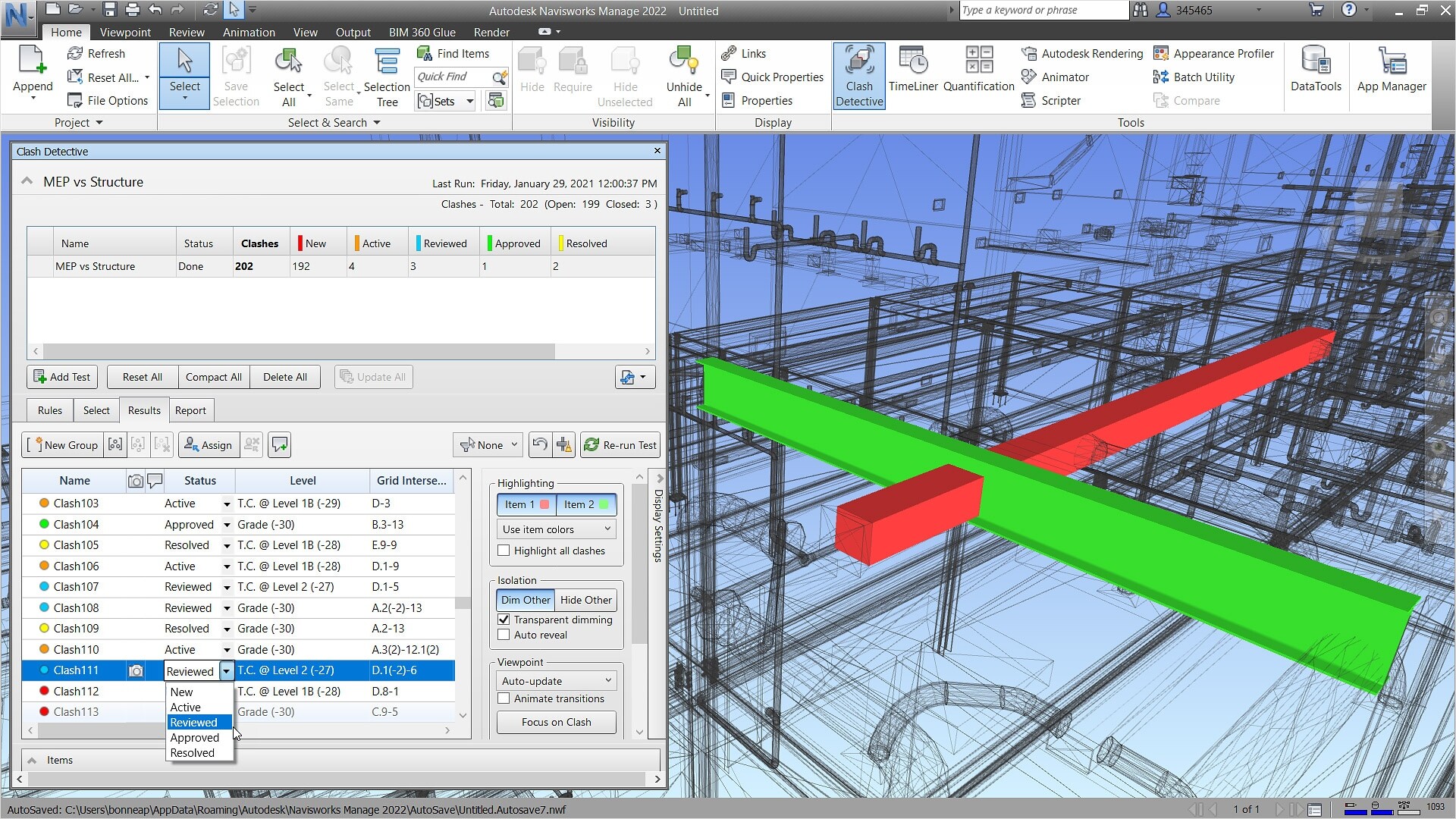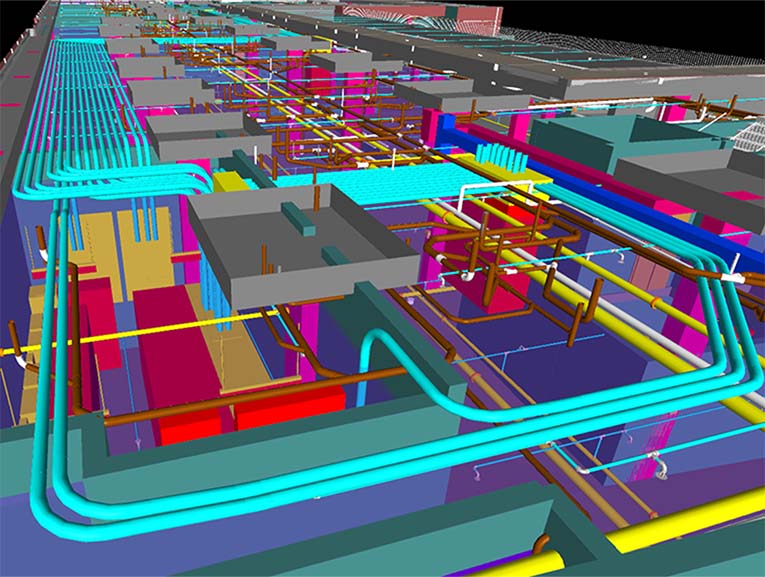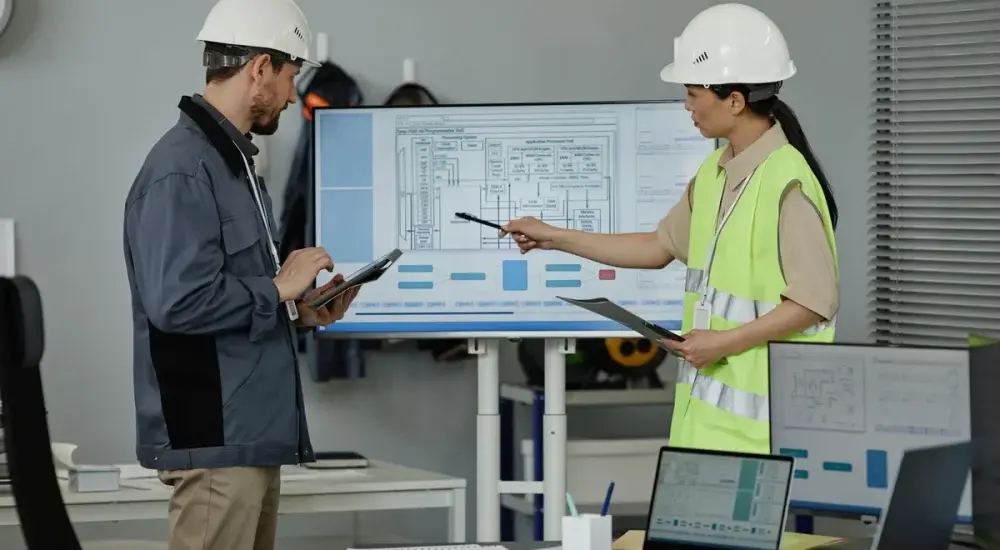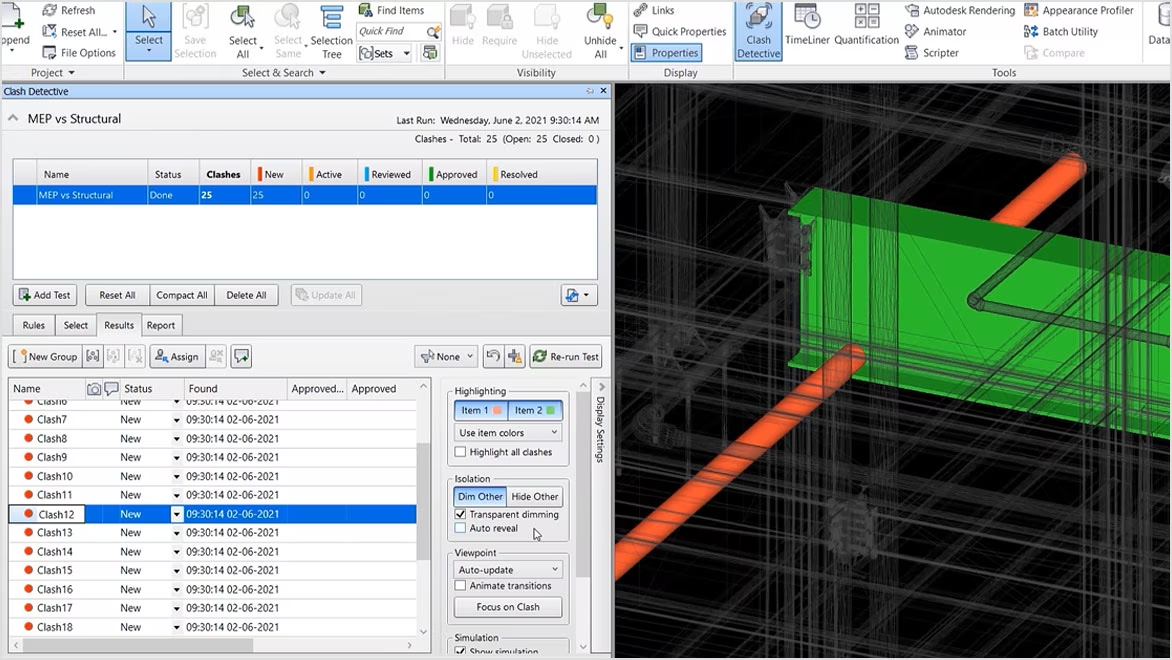
If you have ever wondered how massive construction projects come together with seemingly impossible coordination, the secret often lies in clever software solutions. Among them, Navisworks software stands out as a game-changer in the construction and design world, especially when it comes to MEP engineering. With its ability to visualise, coordinate, and simulate building systems in a single environment, it has become a must-have tool for modern engineers.
Let us dive into what makes Autodesk Navisworks such a powerful ally for those working in MEP services, and why learning it through a professional BIM MEP course could be one of the smartest moves you make in your engineering journey.
What is Navisworks and Its Role in MEP Design
To begin with, what is Navisworks? Simply put, it is a project review tool developed by Autodesk that allows teams to open, combine, review, and navigate 3D models in a single software environment. But it is more than just a 3D viewer. Think of it as the digital brain that helps architects, engineers, and contractors detect clashes, schedule tasks, and collaborate with ease.
When it comes to MEP design, this is especially critical. Coordinating a building’s mechanical, electrical, and plumbing systems can be a logistical nightmare without the right tools. Enter Autodesk Navisworks, with its powerful model federation capabilities and clash detection tools, helping to streamline every part of the MEP building process. It brings together models from multiple disciplines, most commonly using Revit and Navisworks together, to ensure seamless integration of the MEP system within the larger construction framework.
Key Capabilities of Navisworks for MEP Engineering
So, what exactly can Navisworks software do for an MEP engineer? Let us unpack the key features:
1. Model Aggregation
Navisworks can combine models from different sources and formats, be it architectural, structural, or MEP BIM modeling, into a single, unified model. This helps ensure that all elements of the MEP design are visible in relation to other systems.
2. Clash Detection
Possibly its most celebrated feature, clash detection helps users identify and resolve conflicts between systems before construction even begins. For example, if a duct is intersecting with a structural beam, Autodesk Navisworks will highlight the issue long before anyone starts drilling holes.
3. 4D and 5D Simulation
By linking time and cost data to your model, you can simulate construction sequencing and budgeting. This feature is extremely useful in MEP engineering, where the timing of system installation can be critical to overall project success.
4. Navigation and Visualisation
The software provides powerful navigation tools and realistic visualisation, helping stakeholders explore and understand complex MEP services layouts. Whether you are inside a virtual plant room or reviewing a rooftop chiller unit setup, the experience is immersive and informative.
5. Quantification
Navisworks also offers quantification tools that help with estimating material quantities. When it comes to MEP BIM services, having accurate numbers can significantly reduce waste and control costs.
How Navisworks Improves Efficiency in MEP Project Delivery
Efficiency is everything in construction. Projects have tight timelines, tighter budgets, and no room for rework. This is where Navisworks software becomes a project manager’s best friend.
Its clash detection capability alone can save countless hours and resources. By identifying issues early, teams can avoid costly site rework. Also, because it integrates so well with other tools, particularly Revit and Navisworks, teams can collaborate more effectively across locations and disciplines.
Another bonus? The clear visualisation and easy navigation make it easier to explain complex MEP systems to non-technical stakeholders. Whether you are working on a hospital, airport, or a commercial high-rise, having the right tools in place can make your MEP BIM project delivery smooth and hiccup-free.
Challenges in Using Navisworks for MEP & How to Overcome Them
Now, while Autodesk Navisworks is undoubtedly powerful, it is not without its challenges. One of the most common is the learning curve. For someone new to BIM environments or 3D navigation, the interface might feel overwhelming.
There is also the issue of data inconsistency. If models are not properly prepared in Revit or other software, bringing them into Navisworks can result in display errors or missing elements, especially critical in MEP BIM modeling.
But fear not! These challenges are entirely manageable. By following some basic Navisworks tips and tricks, such as setting proper file naming conventions, regularly checking model integrity, and using clash sets wisely, you can avoid most headaches. More importantly, formal training, like a certified MEP course, can make all the difference.
Why is Novatr’s BIM MEP Course the Best Way to Master Navisworks for MEP Projects?
1. Industry-Centric Learning Approach
Learn from real-world construction case studies and live projects tailored for MEP engineering, ensuring practical, job-ready skills from day one.
2. Hands-On Training with Navisworks Software
Master every essential feature of Autodesk Navisworks, including clash detection, 4D simulation, quantification, and model federation, with step-by-step guidance.
3. Seamless Revit and Navisworks Integration
Understand how to efficiently use Revit and Navisworks together for complete, coordinated MEP BIM modeling and project delivery.
4. Clash Detection Like a Pro
Learn how to identify and resolve clashes across MEP systems before construction begins, saving time, money, and headaches on-site.
5. Career Support & Portfolio Building
Build a standout portfolio with real MEP projects and receive career support to help you land roles in MEP BIM services, whether in India or abroad.
6. Flexible Learning Designed for Working Professionals
Study at your own pace with online, mentor-guided sessions—perfect for engineers juggling work or looking to transition into MEP BIM modeling roles.
7. Direct Path to In-Demand MEP Roles
Equip yourself with the right tools, skills, and confidence to take on BIM Coordinator, MEP Modeler, or BIM Engineer roles across top firms worldwide.
Conclusion
In today’s fast-paced construction world, mastering tools like Autodesk Navisworks is no longer optional but essential. Whether you are coordinating a complex MEP system, aiming to reduce clashes and delays, or simply looking to deliver better MEP services, this software has your back. With its powerful features and seamless integration with platforms like Revit, Navisworks software is changing how we design, plan, and deliver MEP buildings. And if you are ready to upskill, enrolling in a BIM MEP course like the one from Novatr could be your perfect launchpad.
Novatr’s BIM Professional Program for MEP engineers is a leading choice for mastering BIM tools and workflows. For expert insights, software updates, and the latest trends in the BIM and MEP industry, visit Novatr’s Resource Page.
FAQs
Q1: What is Navisworks used for in MEP engineering?
Ans: Navisworks software is widely used in MEP engineering to detect clashes, simulate construction schedules, and coordinate between different building systems. It allows engineers to combine multiple 3D models, often from Revit, to ensure the MEP system integrates seamlessly with architectural and structural elements, helping reduce rework and improving efficiency.
Q2: How does Navisworks help improve MEP BIM modelling?
Ans: Autodesk Navisworks enhances MEP BIM modeling by enabling teams to identify design conflicts, visualise systems in real-time, and simulate project timelines. When used alongside Revit, it provides a complete workflow for MEP BIM services, making it easier to detect errors early and streamline project delivery from design to execution.
Q3: Can I learn both Revit and Navisworks in a single MEP course?
Ans: Yes, many advanced programmes, such as Novatr’s BIM MEP course, offer integrated learning of Revit and Navisworks. These tools work hand-in-hand in professional practice, especially for MEP design, where accurate coordination, visualisation, and clash detection are crucial for delivering efficient and error-free building systems.
Was this content helpful to you



.jpeg)



